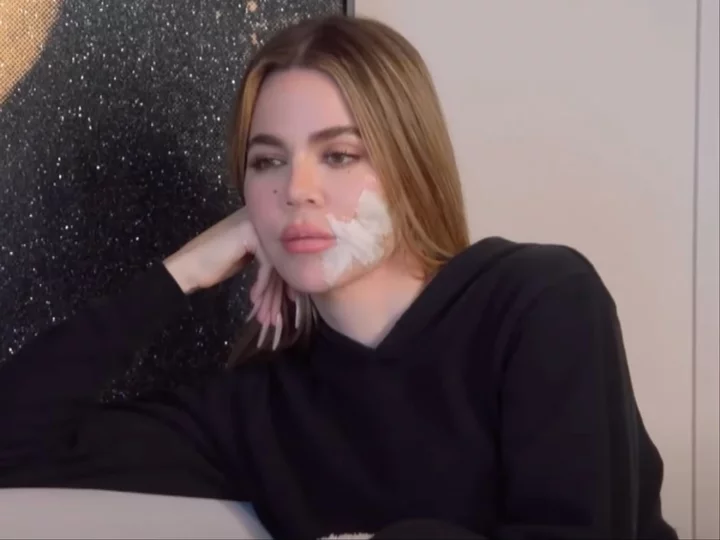
Khloe Kardashian says what she thought was a zit turned out to be melanoma
Khloe Kardashian has revealed that what she thought was a zit on her face turned out to be melanoma. Kardashian, 38, and her family navigate the implications of the diagnosis during the latest episode of The Kardashians, a Hulu series that follows the high-profile members of the celebrity Kardashian-Jenner family. “Khloe has a little bit of a history with melanoma and cancerous lesions, so this on her face is very concerning to me,” Khloe’s mother Kris Jenner, 67, says to her step-sister Kylie Jenner, 25, during the episode. Kylie responds that her older sister had “this little bump and she was trying to remove it, and she’s like, ‘it just won’t go away,’ so to find out it’s melanoma is obviously really scary and I just hope that everything’s gonna be OK.” Kardashian decided to have a biopsy on the bump on her face, despite thinking it was a “zit”. “I have done one biopsy on this bump that I just assumed was a zit, turns out it’s not a zit,” she says during the episode. “It’s melanoma and for my age, it’s incredibly rare.” Melanoma is a type of skin cancer that can spread to other areas of the body, according to the NHS. The main cause of melanoma is ultraviolet light, which comes from the sun and is used in sunbeds. “Melanoma is deadly,” Kardashian said in a trailer for the show. “This is way more serious than I anticipated it to be.” Factors that increase the chances of getting melanoma include age and having pale skin, a large number of moles and a family history of skin cancer. Karshasian first opened up about her skin cancer scare in October 2022 and shared the news on her Instagram Story, featuring close-up photos of her skin. She said at the time that she was “grateful” that the margins now “appear clear” and she was in the “healing process”. “So, here we are… you’ll continue to see my bandages and when I’m allowed, you’ll probably see a scar (and an indentation in my cheek from the tumour being removed) but until then I hope you enjoy how fabulous I’m making these face bandages look.” Kardashian also urged her followers to get frequent checkups by recounting a past incident where doctors found a cancerous mole on her back. “At 19 years old, I had melanoma on my back, and I had a surgery to remove that as well, so I am pre-composed to melanomas,” she said of that experience. “Even those who are not, we should be checking all the time.” “I am someone who wears sunscreen every single day religiously so no one is exempt from these things. Please take this seriously and do regular self-exams as well as your annual checkups.” The Kardashians season three is streaming on Hulu now. Read More Triathlete proudly shares ‘beautiful’ racing photo where she bled through swimsuit while on her period Parents defend Nick the Fairy Godmother’s apprentice at Disneyland after viral video Jodie Marsh takes swipe at Phillip Schofield years after heated This Morning clash Khloe Kardashian praised for ‘honesty’ after opening up about surrogate pregnancy Khloe Kardashian’s best friend appears to confirm name of reality star’s son Khloe Kardashian criticises ‘narrative’ that she’s dating ex Tristan Thompson again
2023-06-01 15:46
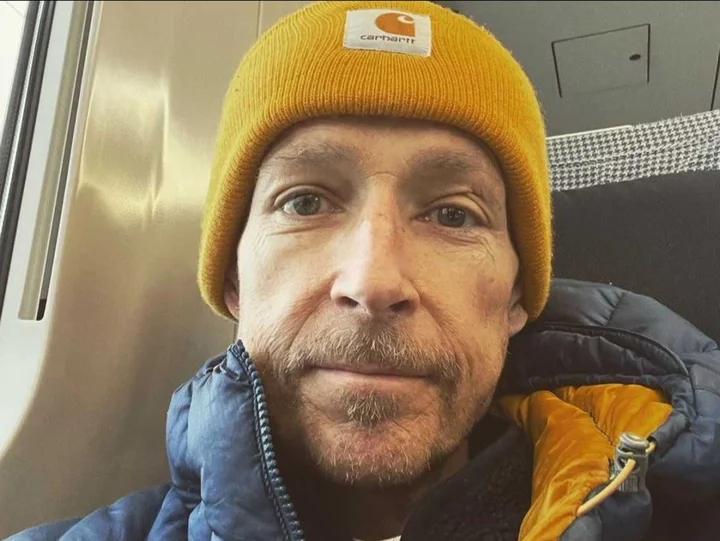
A Place In The Sun’s Jonnie Irwin admitted to hospital amid terminal diagnosis
Jonnie Irwin has revealed that he has been admitted to hospital as he deals with terminal cancer. The Escape to the Country presenter, 49, said in November that he “doesn’t know how long” he has left to live, after first being diagnosed with lung cancer in August 2020, which later spread to his brain. He went public with his diagnosis in November 2022, after keeping it a secret from his fans for more than two years. Since his announcement, Irwin has been keeping his social media followers up to date with his condition. In the latest update, the father-of-three revealed he has gone into hospital to be “monitored” but hopes to be released in time for a scheduled appearance at A Place In The Sun Live in London this weekend (2-4 June). He wrote in an Instagram post: “In hospital this week monitoring a changeover in my pain management regime.” “Fingers crossed I’ll be out in time to make an appearance on Sunday for this weekends @aplaceinthesunofficial LIVE event at @olympialondon in Kensington,” he continued. If he is released from the hospital and attends the event, Irwin will be joined on stage by fellow presenters Jasmine Harman, Ben Hillman and Laura Hamilton. He concluded the post: “Hope to see you there…x.” In a new podcast OneChat released last week, Irwin said that he was living under a “dark cloud” for the two years he hid his cancer from the world, adding that he kept his condition a secret so that he could continue working and “provide” for his family. Irwin and his wife Jessica have three children; three-year-old son Rex and two-year-old twins Rafa and Cormac. Elsewhere in the interview revealed that he had been close to death’s door “at least twice”, emphasising that he prefers to think of his situation as “living with cancer, rather than dying from cancer”. Irwin explained how he began to feel “alive” again after going public with his illness, but noted that didn’t mean his journey had been easy. “I have been close to death’s door, twice at least,” he said. He added: “You lose your memory, you lose your patience. I have got a very short temper. It’s not made me a better person, that’s for sure.” In March, Irwin gave a health update, telling The Sun: “I’m weak now, fragile and my memory is terrible… but I’m still here.” Read More Triathlete proudly shares ‘beautiful’ racing photo where she bled through swimsuit while on her period Parents defend Nick the Fairy Godmother’s apprentice at Disneyland after viral video Jodie Marsh takes swipe at Phillip Schofield years after heated This Morning clash 5 myths about lung cancer everyone needs to stop believing Jonnie Irwin says he’s been ‘close to death’s door twice, at least’ Jonnie Irwin says going public with cancer diagnosis was when he began ‘living again’
2023-06-01 14:58
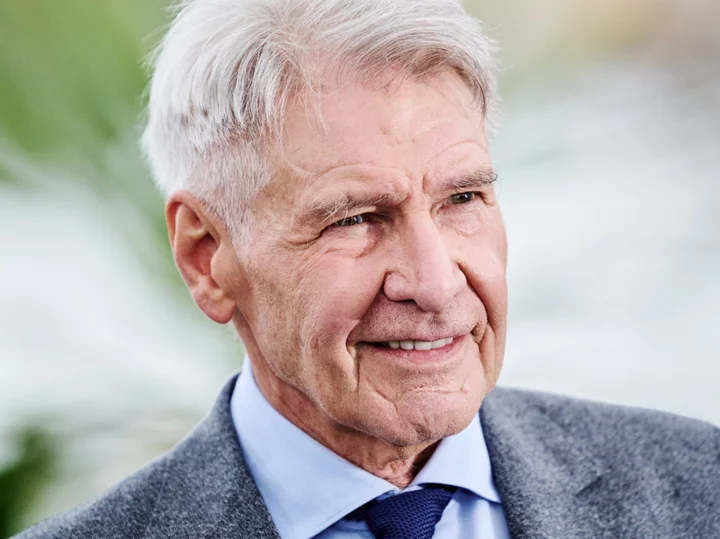
Harrison Ford admits he’d be a ‘better parent’ if he was ‘less successful’
Harrison Ford has spoken candidly about how his successful Hollywood career has impacted his role as a father. The Indiana Jones star, 80, revealed some of his parenting regrets in a new cover story with Esquire published on 31 May. Speaking about his family, Ford admitted that he would “probably be a better parent” if he had a “less successful” career. “I can tell you this. If I’d been less successful, I’d probably be a better parent,” the Star Wars alum shared. He went on to reference a viral quote from his February interview with the Hollywood Reporter, in which he stated: “I know who the f*** I am.” “I accept my flaws and my failures – I don’t accept them, I own them,” he continued. “And certainly the more constant gardener is the better parent, and I’ve been out of town, up my own ass, for most of my life.” Harrison Ford is a father to five children. He shares sons Benjamin, 56, and Willard, 54, with his first wife, Mary Marquardt. He also has son Malcolm, 35, and daughter Georgia, 31, from his second marriage to Melissa Mathison; and his 22-year-old son Liam, whom he adopted after he married his current wife, Calista Flockhart. The couple have been married for 13 years ever since they first met at the Golden Globe Awards in 2002 when Ford was 60 years old, 22 years older than Flockhart at the time. He proposed to the Ally McBeal star in 2009 and they were married one year later. Ford and Flockhart recently celebrated Liam’s graduation from Amherst College in Massachusetts over the weekend. Ford was seen dressed in a black suit with a pale blue shirt and no tie, while the Supergirl star wore a white lace dress and a cream cardigan. Although Harrison Ford has kept most of his family life private, the action star previously spoke about being a father to his then nine-year-old son in an interview with The Independent. “I’ve got five kids in total, so it’s not my first rodeo,” he said in 2010. “Yeah, obviously I’m getting older but I don’t relate to it very much. It doesn’t interest me as something to dwell on.” “I have a nine-year-old kid at home. I feel like the father of a nine-year-old kid. My older children have taught me a lot about parenting. My first child was born when I was 25. I reckon I’m a little better at it now.” Read More Al Pacino, 83, ‘expecting his fourth child’ with 29-year-old girlfriend Harrison Ford and wife Calista Flockhart attend son Liam’s graduation Harrison Ford lovingly admires wife Calista Flockhart in ‘adorable’ viral photo: ‘Couple goals’
2023-06-01 06:26

Jetting off this summer? Doctors share essential in-flight health tips
Holidays are great – but travelling can take its toll on your body and mind, particularly when flying long distances. “When you consider that pressure, temperature and oxygen levels fluctuate in the aircraft, add in the fact that humidity levels are lower than sea level – it’s not surprising flying can upset some of your body’s normal functions,” says Dr Chun Tang, medical director and GP at Pall Mall Medical. “Not forgetting, most people feel varying degrees of stress before take-off too.” So, if your summer holiday is set to include a hefty flight, what are some of the key things to think about when it comes to health and wellbeing? Dehydration “Airplanes can dehydrate you because half of the air circulating in the cabin comes from the outside, and when you’re at a higher altitude there is hardly any moisture in the air,” says Tang. If you want to help mitigate the impact of dehydration while flying, consider what you eat and drink both before and during. “Eat something light, like a salad and fruit. Avoid salty fast food, especially before flying, as this can cause bloating and dehydration,” suggests Tang. “Many people like to have an alcoholic drink in the departure lounge prior to flying, but you are just dehydrating yourself further. Avoid coffee too and stick to fresh juices and water. “After you’ve flown, tempting as it is to go and get an alcoholic beverage, keep drinking water to restore hydration.” Germs Tang explains: “When you fly, you’re exposed to more germs because you’re near others – that’s why it’s common to catch a cold or sniffle following a flight. Your tray table, seatbelt and other surfaces that are frequently touched will also be covered with germs. “Carry a small bottle of hand sanitiser and cleaning wipes with you,” he suggests, “and wash your hands frequently during travel.” Sleep Jet-lag is a pain and can easily ruin the start and end of a trip. So, how can you mitigate its impacts and keep your sleep cycle solid? “Exposure to light is incredibly important for regulating your body clock. When it’s dark outside, you’re more likely to fall asleep,” says Tang. “If you’re travelling west to the USA or South America, for example, you should seek light in the evening time. If you’re headed east, then you want to restrict light exposure if you’re arriving at night-time and seek it out in the morning. “Studies show that blue light from your smartphone or tablet can keep you awake, so avoid these when you’re trying to get some sleep,” he adds. Ears Tang says another possible “side-effect of flying can be stress on your ears due to pressure changes in the cabin”. This is why it’s often advised that people avoid flying if they have an ear infection, for example.“When the outside pressure changes quickly during take-off and landing, you may feel your ears pop. Sometimes this imbalance can cause motion sickness because your brain is receiving conflicting messages,” says Tang. “Try swallowing or yawning to open the eustachian tubes [which connect the middle ear and throat] during take-off and landing.” Circulation Deep vein thrombosis (DVT) is a very real concern for many people when flying. These blood clots, which usually affect the legs, can be extremely serious. “One of the most common causes of DVT is prolonged periods of inactivity when travelling long distances,” says Professor Mark Whiteley, leading venous surgeon and founder of The Whiteley Clinic. “When people significantly reduce the activity in their legs, the blood flow becomes very sluggish in the deep veins – therefore putting people at a higher risk of a clot forming. “It is important to keep as active as possible when flying by regularly stretching and going for a walk up and down the cabin aisle, at least once per hour if it is a long flight,” he adds. “I would also advise wearing properly fitted flight stockings. This speeds up the flow of blood in the veins and therefore reduces the risks of the blood clotting.” Anyone can potentially get DVT, but if you have a history of blood clots or may be at increased risk, always speak with your doctor before travelling. What if I have a pre-existing condition? “If you have pre-existing health conditions, then it’s best to check with your GP on any specific aspects of flying that may impact you,” says Tang. “You’ll also need to ensure that you have purchased adequate travel insurance that will cover you should you require any medical attention while abroad.” Another important consideration is to make sure any medication you will need is stored in your hand luggage/carry-on bag, and not in the hold (in case it goes missing). Some countries may also have restrictions on certain medications – ensure you speak with your doctor well in advance of travelling. Read More Charity boss speaks out over ‘traumatic’ encounter with royal aide Ukraine war’s heaviest fight rages in east - follow live How do heterosexual celebrities become LGBTQ+ icons? More help with childcare costs for families on universal credit from end of June Menopause and menstruation guidance launched for workplaces to support employees
2023-05-31 22:58
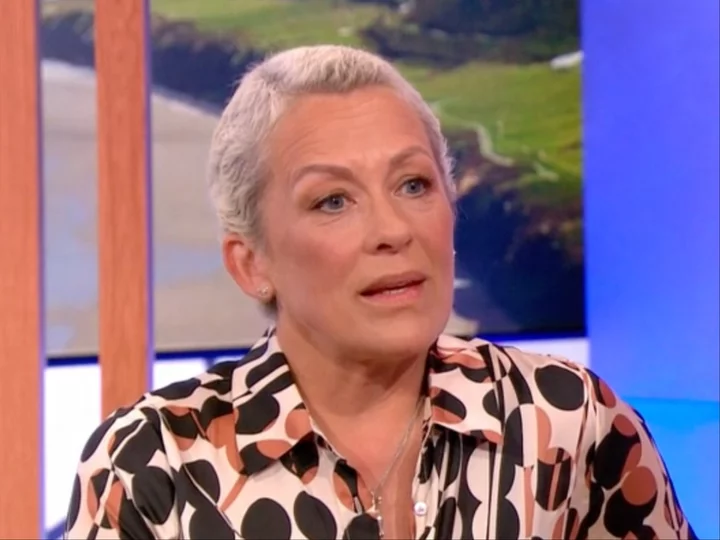
Sarah Beeny shares health update after all-clear from breast cancer
Sarah Beeny has said she is feeling happy and well after being given the all-clear from cancer by her doctors. The TV presenter and property expert, 51, was diagnosed with breast cancer in August last year. In April she was told she was all-clear from the disease. In recent months, Beeny has been working on a new Channel 4 documentary that follows her journey from diagnosis to treatment. Appearing on BBC‘s The One Show on Monday (29 May), the presenter said she “always feared” getting breast cancer after her mother died from the same cancer when Beeny was 10 years old. “When I got to 39, which is the age she died, I thought ‘Here we are.’ And then I got to 40 and thought, that’s weird!” she said. “And then I got to 50 and got the diagnosis.” “I’ve lived with this fear for such a long time,” she continued. “But once I realised how the treatment works, it’s not nearly as bad as the fear.” Appearing on Lorraine in April, Beeny said her cancer journey had been a “rollercoaster ride”. ​​“But I feel very fortunate that I had the diagnosis that I did, and that I live in 2023 and that I’m the age that I am. So many things I’m fortunate for, so I feel very blessed,” she said. Beeny, who received chemotherapy, said she would have to take medication for the next 10 years and remain “very vigilant”. “But, yeah, it’s been a weird ride that I wouldn’t wish on anyone else but I’m glad I did it rather than somebody else,” she added. Beeny has four children: Rafferty, Laurie, Billy and Charlie; and married her husband, artist Graham Swift, in 2003. Her family appears in her Channel 4 series Sarah Beeny’s New Life In The Country, which was filmed before her diagnosis. Sarah Beeny: Breast Cancer, My Family and Me will air on Monday 12 June on Channel 4 at 9pm. Read More College student goes viral after sharing her wild two hour commute everyday: ‘This is a journey’ Mother’s warning after viral TikTok hack left skin peeling from her face The ideal age gap for a relationship if you want it to last, according to experts Sarah Beeny shares health update after all-clear from breast cancer Breast cancer symptoms and survival rate as Amy Dowden diagnosed Signs and symptoms of breast cancer as Amy Dowden reveals diagnosis
2023-05-31 20:25
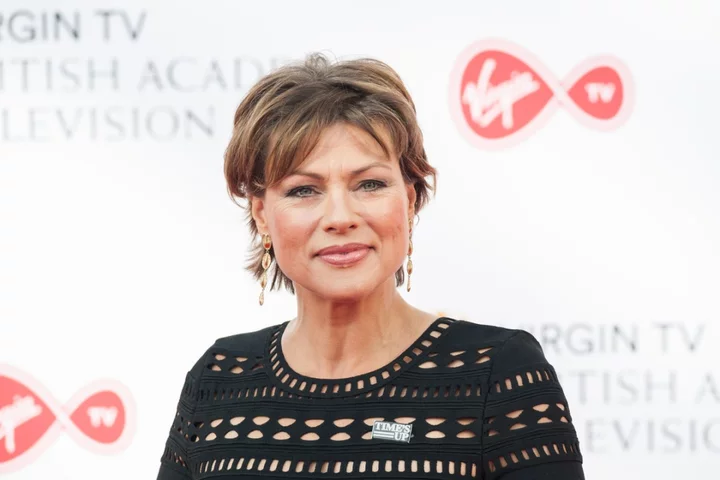
Kate Silverton reveals why she left BBC news career to become child therapist
Former BBC newsreader Kate Silverton has opened up about swapping her successful news career for becoming a qualified child therapist. In 2021, Silverton left her role as a newsreader because she was inspired by her “love” for child psychology. “My academic background is in child psychology, and becoming a mum really inspired me too,” she told the PA news agency. She continued: “My journey has really been decades long, both in understanding more about children’s mental health, and as a parent really benefiting from all the interviews and access to advice that I was given by incredible people.” The 52-year-old, who currently works in a primary school supporting young children with complex needs, admitted that when she competed in BBC’s ballroom dancing competition Strictly Come Dancing in 2018 (she was paired with professional dancer Aljaž Škorjanec and finished eighth), it was with a view of leaving journalism to train as a child therapist. “My interest has been long-held, and I’ve now qualified, and it’s absolutely my life’s passion. So I’ll be using journalism and all my presenting experience to raise awareness around children’s mental health and really to support parents. “I’ve had an incredible life in journalism [presenting BBC News at One and BBC Breakfast, among other high-profile TV and radio roles], and many, many years that have been really fulfilling. I think you’re always drawing upon the experiences you’ve picked up before, but as a mum especially, for me, this is now where home is, and will become my life’s work.” Silverton’s two children, Clemency, 11, and Wilbur, eight, are now aged 11 and eight, and were conceived naturally after Silverton and her husband, Mike Heron, tried IVF but it wasn’t successful. She continued to work as a journalist after Clemency was born, but took two years off when she had Wilbur in 2014. “I was freelance, but it got to the point where I thought I can’t physically do this – you know, I’m an older parent as well,” she said. “I had to make a judgement call – and I can only ever speak for myself, there’s no judgement for others. But I took two years out because I just couldn’t see any other way of doing everything, and doing it the way I hoped to. “It’s really, really hard for parents now, and I say to a lot of the parents I speak to in my clinical work, ‘Please, please, please do not berate yourself, we are living in a very challenging time’. We’re pulled in so many ways, we’re still doing a lot of work at home, and we’re expected to be present either at work, and/or at home. “So there’s no easy answer. But I think we owe it to our children to start asking, is this really working for us as parents? And is it working for our children?” Silverton, who is currently working on her second parenting book, added that she sees her career change as a “second act” in her life. “Ultimately, I thought I don’t want to be doing this, I don’t want to be in the newsroom on a Saturday night when my children are at home with my husband,” she said. With additional reporting from PA. Read More James Middleton says Prince George, Prince Louis and Princess Charlotte are ‘lucky’ A tennis court, walled gardens and a moat: Inside Brightwell Manor, Boris and Carrie Johnson’s new home Al Pacino, 83, is expecting his fourth child with girlfriend Noor Alfallah Kate Silverton on swapping her BBC news career to work as a child therapist Menopause and menstruation guidance launched for workplaces to support employees Watching Love Island this year? How to avoid comparing your body to what’s on screen
2023-05-31 16:58
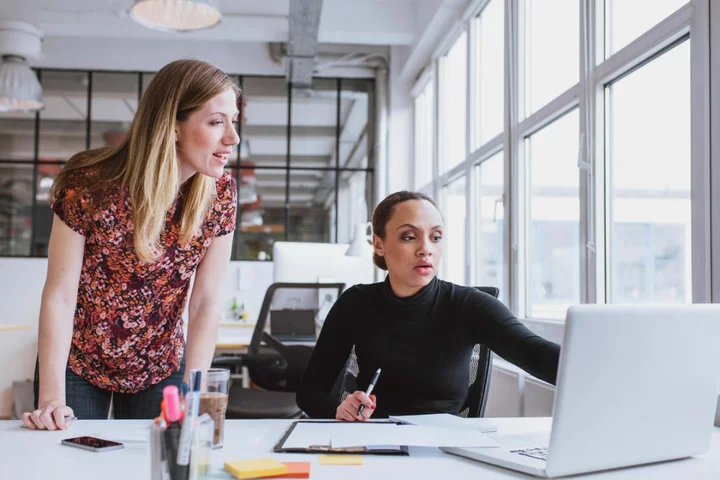
Menopause and menstruation guidance launched for workplaces to support employees
A new workplace standard has been launched for businesses to support employees experiencing menopause or menstruation. The British Standards Institute (BSI) has published the new guidance to help organisations retain experienced and talented staff after a consultation with experts and the public. The Menstruation, menstrual health and menopause in the workplace standard (BS 30416) sets out practical recommendations for workplace adjustments as well as strategies that can help employers meet the needs of those experiencing menopause or menstruation. It comes after research from the Fawcett Society suggested about 10% of those experiencing menopause have left the workplace due to symptoms such as hot flushes, dizziness, insomnia, and muscle and joint stiffness. Organisations which prioritise their people by building an inclusive workplace will be best placed to continue to thrive in the future Anne Hayes, British Standards Institute This figure rises to 25% for those with more severe symptoms. Wm Morrison and BT as well as representatives from Unison, the Federation of Small Businesses, the LGBT Foundation, the Institution of Occupational Safety and Health, the Daisy Network and Endometriosis UK all gave input to the development of BS 30416. The recommendations include workplaces considering whether there is a general awareness of menstruation and menopause in its culture and whether employees have opportunities for open conversations or to request support. Suitable training for line managers and HR managers, reviewing the workplace environment to include facilities such as quiet recovery spaces or discrete changing rooms, and options for flexible working are also among the guidance. Anne Hayes, director of sectors at the BSI, said: “Organisations which prioritise their people by building an inclusive workplace will be best placed to continue to thrive in the future. “There is no one-size-fits-all experience of menopause, but the data suggests thousands of women are leaving the workforce at this stage, contributing to significant productivity losses, robbing organisations of talented people, and removing mentors who can draw on their experience to support newer members of staff. It doesn’t have to be that way.” If we get this right for 50% of the population that we need in the workplace from an economic and experience perspective, it has the potential to make the final 10, 15 or 20 years of a woman’s career the most productive, exciting and meaningful Helen Tomlinson, menopause employment champion Helen Tomlinson, menopause employment champion for the UK Government, said: “I am truly delighted that the BSI have produced the Menstruation, menstrual health and menopause in the workplace standard, recognising the challenges, symptoms and experiences of both menopause and menstrual health and how these can affect women in the workplace. “It’s a free resource for any organisation, large or small across all sectors, to be able to utilise. This will go a long way to ensure that everyone can receive the support they need at this critical time. “I firmly believe this transition isn’t a time to step back, step down or step out. If we get this right for 50% of the population that we need in the workplace from an economic and experience perspective, it has the potential to make the final 10, 15 or 20 years of a woman’s career the most productive, exciting and meaningful.” Read More Charity boss speaks out over ‘traumatic’ encounter with royal aide Ukraine war’s heaviest fight rages in east - follow live Kate Silverton on swapping her BBC news career to work as a child therapist Watching Love Island this year? How to avoid comparing your body to what’s on screen Dating ‘green flags’ to look out for on Love Island – and in your own life
2023-05-31 16:26
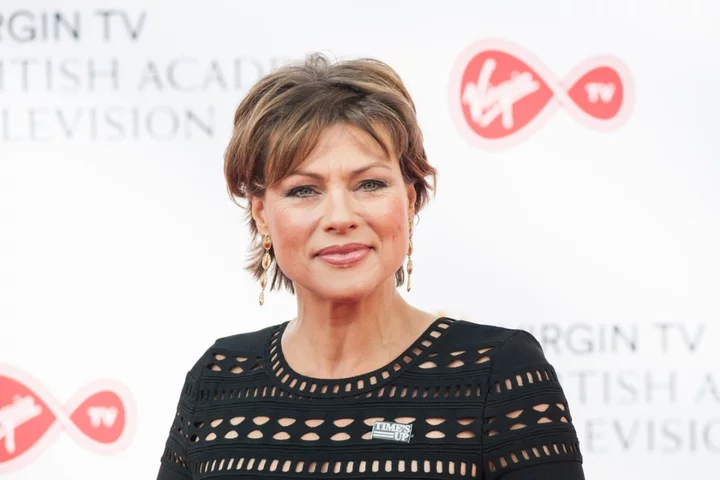
Kate Silverton on swapping her BBC news career to work as a child therapist
Most people know Kate Silverton from her time as a BBC newsreader, or possibly from when she took part in Strictly Come Dancing. But that’s the old Kate Silverton. The new Kate Silverton is a qualified child therapist – so what made the mum-of-two swap such a successful media career to help children instead? “The love of it! My academic background is in child psychology, and becoming a mum really inspired me too,” she says. She’s worked with a number of children’s mental health charities over the years, and explains: “My journey has really been decades long, both in understanding more about children’s mental health, and as a parent really benefiting from all the interviews and access to advice that I was given by incredible people.” Currently working in a primary school supporting young children with complex needs, Silverton, 52, admits that when she competed on Strictly in 2018 (she was paired with professional dancer Aljaž Škorjanec and finished eighth), it was with a view of leaving journalism to train as a child therapist. “And that’s what I did,” she declares proudly. “My interest has been long-held, and I’ve now qualified, and it’s absolutely my life’s passion. So I’ll be using journalism and all my presenting experience to raise awareness around children’s mental health and really to support parents. “I’ve had an incredible life in journalism [presenting BBC News at One and BBC Breakfast, among other high-profile TV and radio roles], and many, many years that have been really fulfilling. I think you’re always drawing upon the experiences you’ve picked up before, but as a mum especially, for me, this is now where home is, and will become my life’s work.” Silverton’s two children, Clemency and Wilbur, are now aged 11 and eight, and were conceived naturally after Silverton and her husband, Mike Heron, tried IVF but it wasn’t successful. She continued to work as a journalist after Clemency was born, but took two years off when she had Wilbur in 2014. “I was freelance, but it got to the point where I thought I can’t physically do this – you know, I’m an older parent as well. “I had to make a judgement call – and I can only ever speak for myself, there’s no judgement for others. But I took two years out because I just couldn’t see any other way of doing everything, and doing it the way I hoped to. “It’s really, really hard for parents now, and I say to a lot of the parents I speak to in my clinical work, ‘Please, please, please do not berate yourself, we are living in a very challenging time’. We’re pulled in so many ways, we’re still doing a lot of work at home, and we’re expected to be present either at work, and/or at home. “So there’s no easy answer. But I think we owe it to our children to start asking, is this really working for us as parents? And is it working for our children?” Was she worried that taking two years out might affect her career? “I was the main breadwinner,” she says, “And my husband and I made a decision between us that things would change. And I think a lot of families do that – they have to find themselves having really difficult conversations. And certainly, there are no easy answers. “But what I found is I’ve changed my career, and I see it as a second act, if you like, and maybe that’s thanks to having children. So sometimes, what can seem a really difficult decision and one that we might worry about, you kind of think, actually, maybe it wasn’t the right place for me, after all.” She returned to journalism after her two years out, but was working at weekends doing the Saturday night news while her husband looked after the kids. “Ultimately, I thought I don’t want to be doing this, I don’t want to be in the newsroom on a Saturday night when my children are at home with my husband,” she says. “We all make these decisions based on our own personal circumstances, and for me at the time, I was ready to follow my heart and retrain, as that had been in my mind for a very long time. So I guess the decision made itself, really.” Silverton is now determined to help make family life work not only for herself, but for other parents, and as well as her work in a primary school and writing the book There’s No Such Thing As ‘Naughty’ (Piatkus, 2021) – a parenting guide which explores how children’s brains develop and how it influences their behaviour – she’s teamed up with the children’s furniture brand Stokke to explore parents’ worries about child development in the under-fives. New Stokke research has found 29% of parents of children aged zero to five years are concerned about their child growing up shy, and nearly a third (31%) of parents identify confidence as the most important characteristic for their child to gain during their early years. “First and foremost for children, especially under five, we want to ensure the foundations being built in their brain are strong,” explains Silverton. “And parents are the best people to build those foundations for future mental health.” In practical terms, what do parents need to do to help their children learn to be confident and mentally strong? “Be with them,” advises Silverton. “Our presence is really crucial, because when our children inevitably navigate more challenging experiences, having us nearby to model the behaviour that’s appropriate can give them the confidence to know they can eventually go off alone. “I’d love parents to feel more confident to follow their instincts when it comes to being with their children. Our children don’t necessarily need to be doing in these early years, they simply need to be. And by that I mean being with and alongside us as their guide. Because parents really are more powerful than they know.” She stresses it isn’t about buying young children expensive educational toys or doing anything complicated. “It’s the little things that mean so much – putting the phone down and actually engaging with our children face-to-face, getting down on the floor and playing with them, spending time with them, letting them know we value them and we want to spend time with them, we love and we delight in their presence. These are the things that build confidence, because they’re building a sense of self-worth.” Although she’s stepped back from her high-profile broadcasting career, Silverton’s still very busy with child therapy and writing her second book, which she hopes will be published in the autumn. But, as she says herself, “We’re told we can have it all – well, actually, you can have it all, but not at the same time.” “Being a busy parent who’s also trying to work, I suppose the victim is my own wellbeing,” she reflects. “It’s not like I’m terrible, but it does get squeezed more than I’d like.” However, she does find some time to look after herself. “Whether it’s bouncing on a little trampoline, or going to walk your dog or doing yoga, anything that’s patterned, repetitive, rhythmic, is actually very soothing for our brain stem, and absolutely vital for our health,” she explains. “I am really mindful of my health, and I’d love to carve out more time, and certainly when I’ve got book two finished, I will be doing a lot more of it. But I pretty much keep in balance, and I’m fairly good at recognising when my body’s out of kilter and then doing something about it. So I haven’t learned this much without applying a few good principles myself!” Kate Silverton is supporting Stokke to explore parents’ worries about child development and the early years. Read More Charity boss speaks out over ‘traumatic’ encounter with royal aide Ukraine war’s heaviest fight rages in east - follow live Watching Love Island this year? How to avoid comparing your body to what’s on screen Dating ‘green flags’ to look out for on Love Island – and in your own life Crackdown on vape adverts targeting kids – what parents can do
2023-05-31 14:55

Watching Love Island this year? How to avoid comparing your body to what’s on screen
ITV2 has and revealed the first 10 contestants who will be heading to Majorca to take part in the summer season of Love Island. Commercial estate agent Catherine Agbaje, semi-professional footballer Tyrique Hyde and model Ella Thomas are among the islanders who will enter the Spanish villa when the new series starts on Monday, June 5. We’re set for another summer of romantic recouplings, dramatic dumpings and bombshell arrivals, but it’s important to remember that this brand of ‘reality’ TV doesn’t always reflect the real world. Especially when it comes to body diversity. Love Island contestants lounge around in swimwear all day, meaning there’s more of a focus on their physiques than on other shows. While for some viewers, the clothing (or lack thereof) doesn’t make a difference, it’s understandable if you do find that you compare yourself unfavourably to the scantily-clad islanders. “It depends really on the way that we do that comparison, whether it’s positive or negative,” says Lowri Dowthwaite, lecturer in psychological interventions at the University of Central Lancashire. “We do know that there’s a big link between that kind of negative comparison and people feeling bad about themselves or feeling that they’re not good enough.” There may also be a gender divide when it comes to comparison and body image. Dowthwaite says: “Women have a tendency to be to compare themselves a lot more. Rumination around that as well tends to be higher in women… and that can be quite damaging.” Indeed, a 2019 YouGov survey found that 75% of Love Island viewers agreed with the statement ‘it is important for me to look physically attractive’, the majority of which (43%) were aged 18 to 29. “When people are younger, I think naturally we are much more self-conscious and much more preoccupied with the way that we look,” says Dowthwaite. “As people get older, past 30 or 40, the preoccupation gets a bit less. I definitely think it is a bit of a thing that affects the younger people.” In turn, this ‘compare and dispair’ mindset can affect our behaviour or self-esteem. “People get drawn into that negative self-evaluation, where they maybe focus in on one particular part of their body that they’re not happy with. In extreme cases, it might have an impact on dieting,” Dowthwaite continues. Although she points out: “We can’t definitely say that the media and what we see causes eating disorders, because it’s too complex to say that. I think it’s about how we consume [TV] helpfully.” So how can viewers enjoy Love Island in a balanced, body positive way? Remember it’s not always realistic First of all, remind yourself of all the technical trickery that goes into making glossy TV shows. “It’s filmed in a way with lighting whereby it’s going to accentuate people’s features, there’s a lot of editing that goes into it as well,” says Dowthwaite. Same goes for the glamorous promo materials: “It’s photographed in such a way that, you know, it’s not real life – real people have flaws, we all have flaws.” Plus, these contestants have had weeks or months or get ready for their ‘big TV reveal’. “They might have gone through rigorous regimes to get themselves looking as good as they can possibly look,” she says. It’s not healthy to try to have the same figure as someone who is, for example, naturally very thin: “If you’re not genetically meant to be that slim, then you’re not going to be.” Monitor what you’re consuming With reality shows that are designed to keep you hooked, it’s easy to forget how they might be affecting your mood. “You need to become conscious of it,” says Dowthwaite, who recommends keeping a diary of what you’re viewing in terms of TV or social media and monitoring how it makes you feel. “If you find that you’ve consumed lots of things like Love Island and things that are appearance-based and you’re feeling quite low and moody… there’s probably a correlation between that.” Seek out body positivity To counteract the effects of unattainable reality TV ideals, it can help to follow body positive Instagram or TikTok accounts. “We need to see more of that, I think, in the media, to help people to not be so self-critical,” says Dowthwaite. “And to kind of appreciate that we’re all different shapes and sizes – and that’s good.” Focus on other activities Ultimately, it’s not healthy to derive your self-esteem from your looks, which is why you need to remind yourself that there’s more to life than having a Love Island-level body. “What are you good at? What talents do you have? What interests do you have? What are your strengths? Those kinds of things are a lot more important,” says Dowthwaite. If you’re feeling down about yourself, switch off the telly and take part in some mood-boosting activities. “Exercising and using your body to do things that you enjoy, like going for walks in nature, or doing yoga or horseback riding or whatever it is you’d like to do, that’s a way to have a healthier relationship with your body,” Dowthwaite recommends. “Moving your body in the great outdoors is just an excellent way to kind of feel that all that stuff doesn’t really matter that much.” Love Island returns to ITV2 and ITVX on Monday June 5. Voting for the first coupling up opens at 8am on Thursday on the Love Island app. Read More Charity boss speaks out over ‘traumatic’ encounter with royal aide Ukraine war’s heaviest fight rages in east - follow live Dating ‘green flags’ to look out for on Love Island – and in your own life Crackdown on vape adverts targeting kids – what parents can do How to make a small garden feel bigger
2023-05-30 21:55
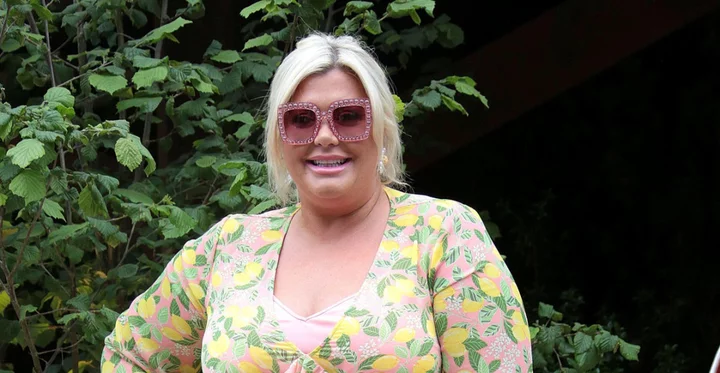
Gemma Collins says she wouldn’t ‘need to’ consider surrogacy: ‘I can have the best doctors going’
Gemma Collins has opened up about her future plans for motherhood, amid her battle with polycystic ovary syndrome (PCOS) and an underactive thyroid. The former The Only Way is Essex star dismissed the suggestion that she could use a surrogate to have children, declaring that she has “the best doctors going” to help her get pregnant when she is ready. Speaking to OK! Magazine at the Chelsea Flower Show recently, Collins, 42, admitted that she did not know if she sees herself ever having children in the future, despite having previously said she was “desperate” to have a baby with fiancé Rami Hawash. “Obviously I’ve got PCOS and all of that,” she said. “I could have a child at 50. If I’d had kids sooner, I would probably have been crazy, whereas now, I’m Miss Organic, I can just be at Zen with the child.” However, Collins said that going to mother and toddler groups has “never interested” her, unless they are in “Knightsbridge, darling”. “I’m happy to host my own one indoors or around the vegetable patch,” she continued. “A bit of organic pressed champagne! “It’s a lot having a kid. It’s a big commitment but it’s also very rewarding. But my life will take me where it’d going to take me. It’s taken me this far and as sure as hell, it’s not over yet.” Asked if she would consider having a child via surrogate, the TV personality said: “I don’t think I’ll need too. I’m The GC, honey. I can have the best doctors going. I’ll just ring one up and say, ‘Right, come on, get me pregnant!” Collins also gave an update on her mental health and said she was off all anti-depression medication as it “really clouded” her judgement. In her 2021 documentary Gemma Collins: Self-Harm & Me, Collins revealed that she was “always put off having children” due to the fear that her depression and self-harming would make her an “unfit mother”. However, instead of taking medication to treat the condition, she now uses a device called the Flow Neuroscience Headset. The device, created by a Swedish company, uses electric pulses to increase brain activity and is currently being trialled by the NHS. Collins said: “I do it in the morning when I’m making a cup of tea. It’s a head device programmed to an app on your phone and it stimulates the frontal area of the brain linked to depression.” The I’m A Celebrity star claimed the headset has so far helped to clear her head and bring her emotions back, which she said were “numbed” by anti-depressants. “I’ve got all my feelings again and I felt that my judgement was quite clouded. I didn’t feel like I could see dodgy people around me. People were taking me for granted but my brain is so sharp now and I’ve got no side effects,” she said. “I was desperate to get off medication – but everyone is different and they need to consult their GP. But I was like, ‘I don’t want them in my life.’ That’s it.” Read More Dani Dyer chooses matching initial names for newborn twin daughters: ‘My heart feels so full’ Succession’s Sarah Snook welcomes her first child with husband Dave Lawson Queer parents need everyone’s support, not people calling us ‘breeders’ Gemma Collins urges women to talk openly about incontinence Sarah Beeny shares health update after all-clear from breast cancer Crackdown on vape adverts targeting kids – what parents can do
2023-05-30 19:27
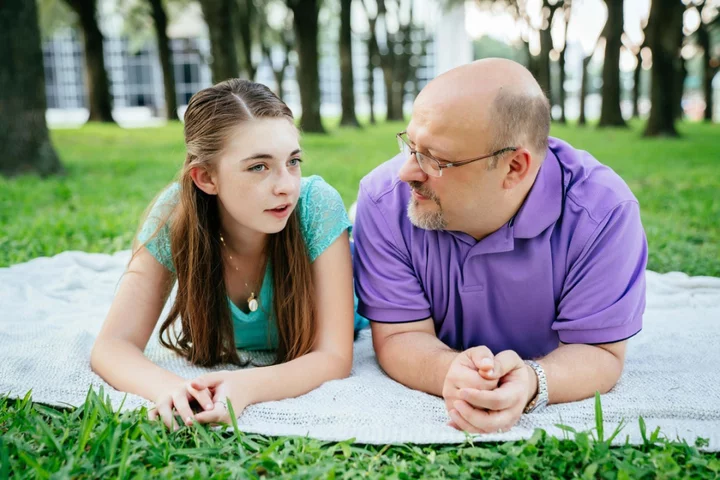
Crackdown on vape adverts targeting kids – what parents can do
The Government is cracking down on vape marketing targeted towards children and young people, Rishi Sunak has said. The news comes days after the Prime Minister spoke about his concerns his own daughters would potentially be targeted by vape marketing on ITV’s Good Morning Britain. Ministers have now pledged to close a loophole allowing retailers to give free samples of vapes to children in England, amid concerns over the proportion of children trying e-cigarettes. There will also be a review into banning retailers selling “nicotine-free” vapes to under-18s, and the Government will look at the rules on issuing fines to shops that illegally sell vapes to children. The Prime Minister said he was “deeply concerned” about an increase in children vaping and was “shocked by reports of illicit vapes containing lead getting into the hands of schoolchildren”. Sunak said: “That is why I am taking further action today to clamp down on rogue firms who unlawfully target our children with these products. “The marketing and the illegal sales of vapes to children is completely unacceptable and I will do everything in my power to end this practice for good.” Why is vaping bad for children’s health? “We could argue vaping doesn’t have the amount of toxins cigarettes have – up to 70 of these cause cancer – but vaping is not completely harmless,” says GP Dr Anita Raja. “It’s very important to protect your organs, especially your lungs and brain. Vaping can be particularly detrimental to people under the age of 18 who are still developing.” Most vapes contain nicotine, which is highly addictive and can cause can cause an increase in blood pressure, heart rate, flow of blood to the heart and a narrowing of the arteries. “It can become very difficult to get off the nicotine – so why would you want to be addicted at such a young age?” Raja asks. The other problem with vaping is that experts don’t yet fully understand the long-term risks because it’s such a new phenomenon, she adds. “Let’s not forget when cigarettes were introduced many decades ago we didn’t know that they could cause cancers and long-term irreversible lung damage.” How to talk to your children “First up, learn about the facts of vaping yourself. Get information from a reliable source,” says parenting expert Liat Hughes Joshi, author of Help Your Child Cope With Change. “So that when you do end up discussing this with your teenager you’re coming at it from a place of knowledge and you’ll feel more confident.” The conversation could be tricky, so approach it calmly. She advises: “Choose your time in place carefully. Don’t pounce on your teenager when they’re in the middle of something or when they are stressed about an exam. Choose a time where you’re both feeling relatively relaxed.” “Instead of telling them not to, what you are much better doing is giving them that information about the real risks and the downsides of vaping, so that they can hopefully make a decision of their own which is the right decision,” Hughes Joshi says. “It’s definitely worth talking to them about ideas around [peer pressure] and giving them the confidence to push back and say, ‘I don’t have to copy all my peers if they are vaping’.” Similarly, if you know or suspect that your child has already vaped, try not to fly off the handle. “Don’t automatically scold them,” says private GP Dr Suhail Hussain. “Find out why they tried it, and then listen. Be understanding and informative, not angry and disappointed that they would do this in the first place.” What about if you vape yourself but don’t want your child to follow suit? “We need to lead by example,” says Raja, who believes vaping should be used only as a way for adults to quit smoking. “It is almost impossible to convince your children to not vape if they see you doing it. If you don’t want your child to vape, then you shouldn’t vape, or certainly not vape in front of them.” Read More Charity boss speaks out over ‘traumatic’ encounter with royal aide Ukraine war’s heaviest fight rages in east - follow live How to make a small garden feel bigger How not to get ripped off when upgrading your kitchen The best scented plants to enhance your balmy summer evenings
2023-05-30 17:21
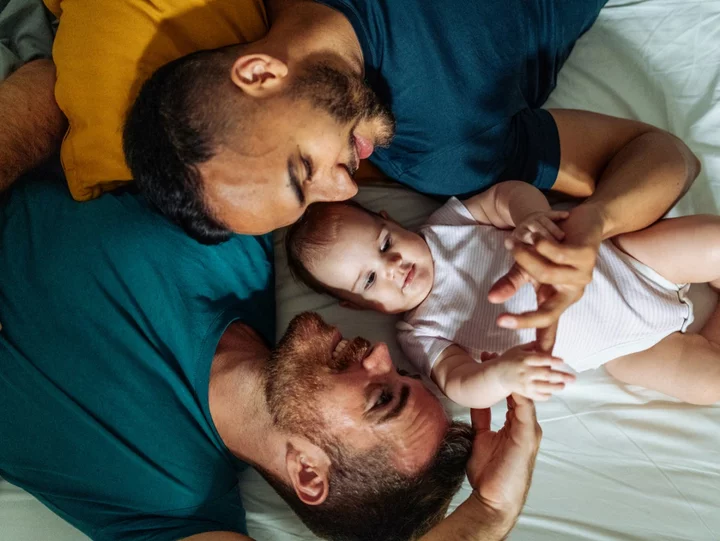
Queer parents need everyone’s support, not people calling us ‘breeders’
A recent book called The Queer Parent, written by Lotte Jeffs and Stu Oakley, calmly opens with the line: “Ninety per cent of queer parenting is simply… parenting”. It’s a fair point. Whether you’re male, female or non-binary, single or partnered, and regardless of your sexuality, all of us who parent aim to meet the exact same needs for our children, day in, day out. The title caught my attention because I think there’s something very timely and profound about the act of being a gay or queer parent today. It’s doing the work that many (dare I say most) people want to see in society – namely raising a new generation of non-toxic humans, making the world a happier place to be different – but in the slow grind of parenthood, not just in the quick flash of activism. I really believe gay and queer parents are changing the world, in a very deep yet unsexy way. Mum and mummy being at the school gate, dad and daddy collecting a child from nursery, or as we’ll get into, dad giving birth to a baby son or daughter. They’re changing the world by being active, visible and engaged parents. But there’s a slightly awkward, under-discussed aspect to this that has truly got under my skin in the eight years since I’ve been a parent. I’m pansexual, so I fancy men as well as women, non-binary people and pans. But oddly I’ve always been frightened to talk about parenthood with most of my avowedly gay male friends – because I’m never quite sure if anyone’s going to derogatorily refer to me as a “breeder” or not. It’s hard to know how well-known the term “breeder” is. I personally used to hear it a lot more back in the mid-Noughties when I was in my early twenties. It’s essentially a slightly bitchy term that’s interchangeably derogatory to people with kids and/or straight people as a whole. As a word, it’s a pretty effective zinger. Straight people have tended to use sexual imagery to define and denigrate gay people. It seems fair that gay people would do the same to heterosexuals. “Breeder” reduces the pleasures of sex to a slightly dehumanised process. In fact, unconnected to sexuality, Gulliver’s Travels author Jonathan Swift used the term to reduce people to a brutal, almost farmyard functionality in a satirical essay from 1729. It’s important to establish that I’m not here to spank gay men on the bum. Neither am I here to accuse them of “heterophobia” either – which I’ve put in quote marks because I’m dubious that it can even exist as a concept. If I was an exclusively gay guy, I might robustly define my sexuality against heteronormativity in ways which could be punchy and sharp. I might also – by virtue of a lifetime of homophobia and trauma that may have started in the home as a child – have latently negative views about the whole concept of family. But I am who I am now, and despite understanding all this, I’m still getting weary of it as a trope, and also as a reason not to talk about the many genuine ecstasies of parenthood. I like being a dad and I like dating guys. These things shouldn’t be so controversial – yet weirdly, I find it’s gay men who have more slack-jawed incomprehension of these two facts than any other group in society. My own personal beef is very trifling in the scheme of things, however. The much bigger picture is that – newsflash – gay, queer and trans people have kids. Loads of them. While data is limited, there was a 40 per cent rise in same-sex parents from 2015 to 2019. Anecdotally, it seems to be a much greater phenomenon than is reported. The same goes for the rarely examined hardships LGBT+ people typically go through to even have kids: namely the incredible anguish of IVF and the epic emotional journey of surrogacy. You’d expect increased visibility of gay and queer parents would have phased out the use of the word “breeder” as a pejorative, but weirdly it lives on – especially on TikTok where, perhaps like an unkillable echo of my own twenties, it’s mostly young people using the word as a way of defining their queerness and riling up straights. What makes my heart sink, beyond knowing that a younger generation is using the same dumb-ass words people said 20 years ago, is that this is a really, really bad time to start being unsupportive of gay parents. While queer visibility may feel greater than ever, the world is going backwards in many respects. Even just in the realm of children’s culture, things as harmless as a drag artist reading stories can draw an angry mob of culture warriors – as happened at Tate Britain in London in February. Look at Florida – once the home of fictional queer icons The Golden Girls, now home to Republican governor and presidential hopeful Ron DeSantis – and you’ll see books with titles as benign as This Book Is Gay banned as a result of his vociferously “anti-woke” legislation. We all know that creating this type of hostile environment will surely result in more bullying, more hatred, more lives blighted. While queer visibility may feel greater than ever, the world is going backwards in many respects It’s pathetic, cruel yet grimly successful at the same time. With every small news story or stunt, a palpable hostility festers. Thus anything that drives a wedge between gay/queer people and parenthood is a bad look right now – especially with elections looming in the US and Britain that I fear will see the issue of gender identity playing a huge, calculatedly divisive role. What better way to rebuff this negativity than by strongly standing up for gay and queer parents. Specifically, we could start standing up for men having babies. Trans men like the British journalist Freddy McConnell who a few years back gave birth to a child who seems to be doing great (and likes a good splash in the sea), or Iowa-born Tanius Posey, who thankfully was able to breastfeed his child despite simultaneously getting online abuse for it. Logan Brown, also from the UK, is a trans man who has been documenting his pregnancy over the past few months with genuine clarity and candour. He gave birth to his daughter Nova just over a week ago. Celebrated gay NYC artist Keith Haring frequently placed a baby into his work, a shining symbol of hope and playful optimism for the future. Maybe in the same spirit as Haring, we could all do with a new beginning in our attitudes to gay and queer parenting, inspired by a rather miraculous baby such as Nova. Read More How OCD can destroy relationships: ‘I had the obsessive fear that I might cheat’ Women with body hair remain a cultural taboo, and I can’t see it changing Flip-flops, nudity and ‘up the vajayjay!’: How the red carpet became a platform for protest
2023-05-30 14:27
